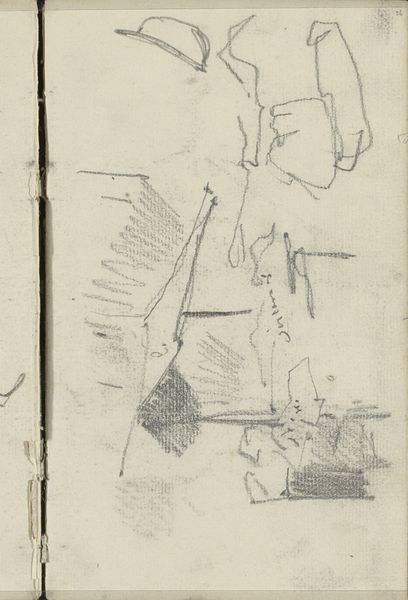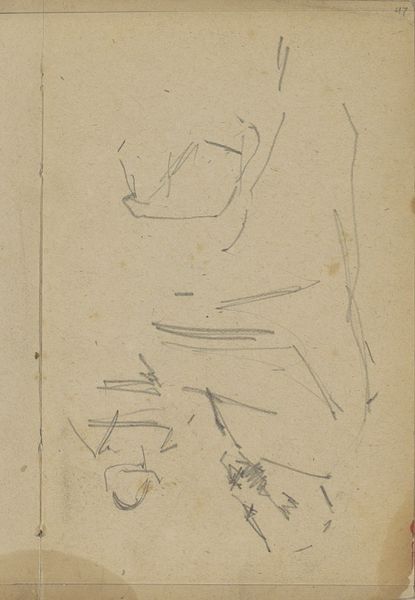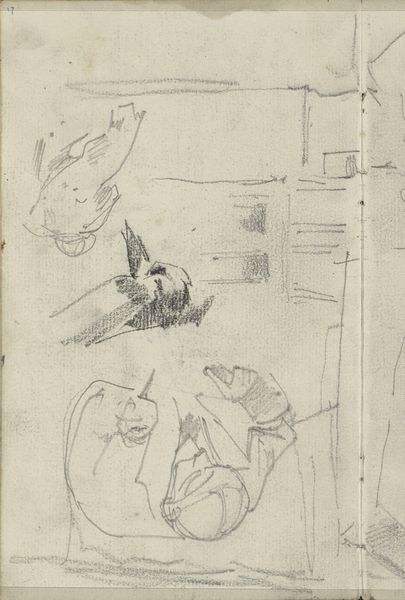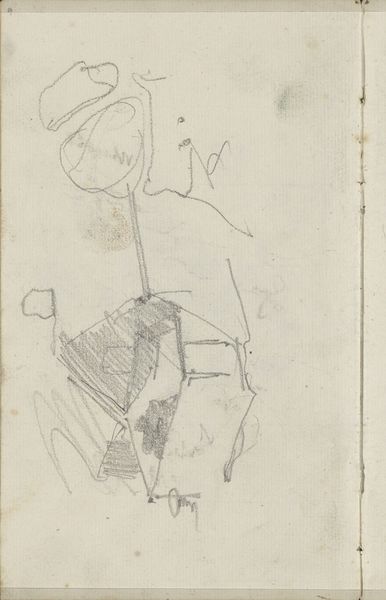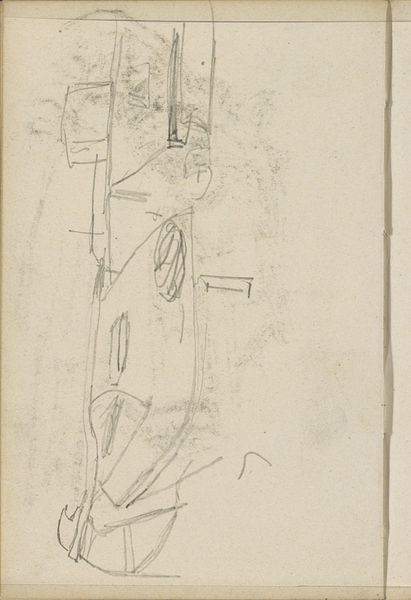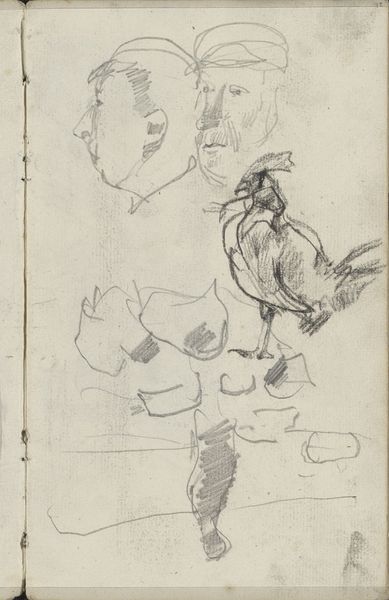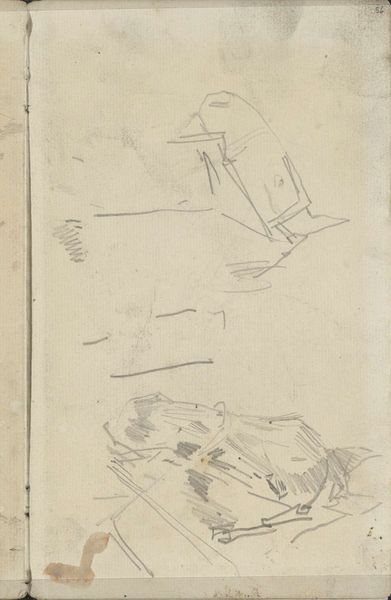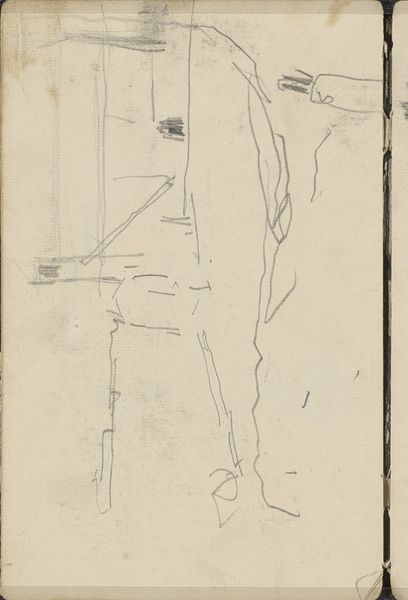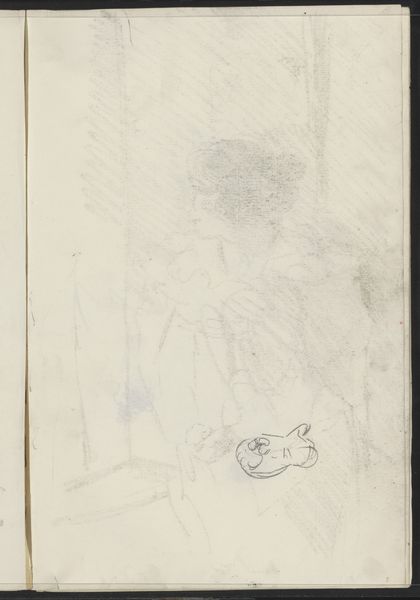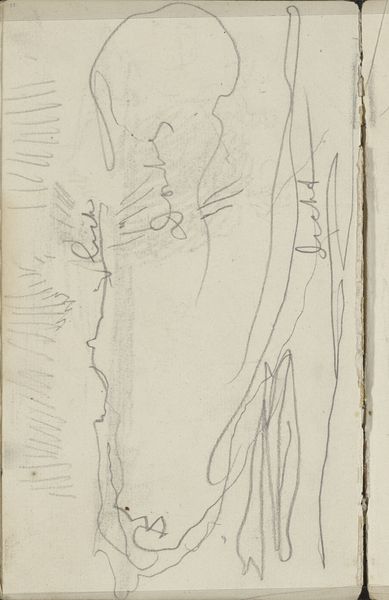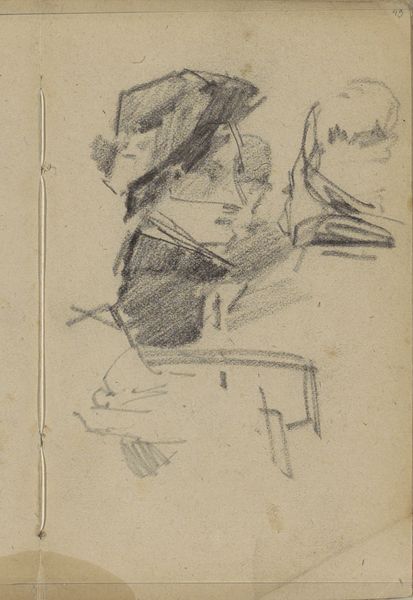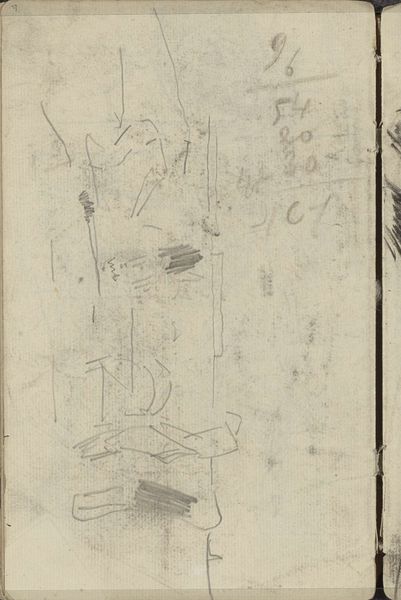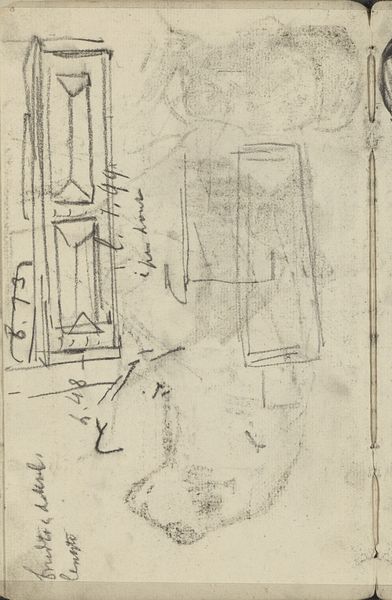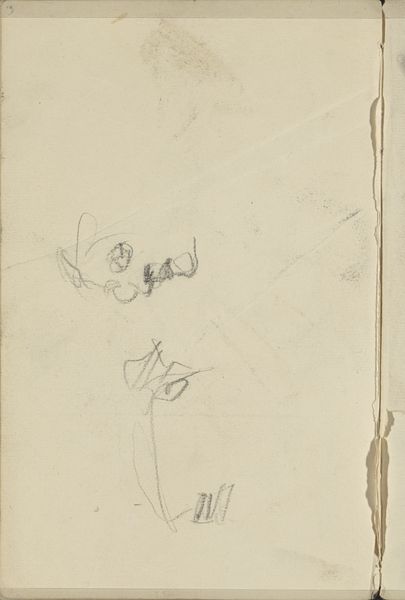
drawing, paper, pencil
#
portrait
#
drawing
#
quirky sketch
#
dutch-golden-age
#
impressionism
#
sketch book
#
figuration
#
paper
#
personal sketchbook
#
idea generation sketch
#
sketchwork
#
ink drawing experimentation
#
pen-ink sketch
#
pencil
#
sketchbook drawing
#
storyboard and sketchbook work
#
sketchbook art
Copyright: Rijks Museum: Open Domain
Editor: This is "Figuren bij een kraam en twee handen," or "Figures by a Stall and Two Hands," a pencil drawing from 1881-1883 by George Hendrik Breitner, currently housed in the Rijksmuseum. It’s almost like a page torn from a sketchbook—so immediate and intimate. What do you see in this piece, beyond just preliminary sketches? Curator: I see layers of meaning embedded in the artist's choice of imagery and composition. The hands, rendered with such detail compared to the other figures, suggest a focus on labor, exchange, or perhaps even vulnerability. Hands are potent symbols – think of prayer, work, supplication. How do they strike you? Editor: They do feel a bit isolated, almost as though they are performing for the artist’s eye. There is definitely more detail compared to the other figures that appear flat and lifeless. Curator: Precisely! Now consider the stall, or ‘kraam’ in Dutch. Stalls are transitional spaces, locations of transaction but also community. They embody the everyday rhythms of city life. Does it remind you of anything else when you consider the hand positioned right at the top? Editor: Hmm... now that you mention it, and maybe I’m pushing it, but the hands above the tent feel reminiscent of a depiction of Christ. I mean, it could be something totally different too! Curator: Even if subconscious, artistic expression often carries echoes of cultural memory, like a painter's take on a Byzantine icon. We're attuned to seeing familiar patterns; artists themselves aren’t immune to drawing upon deeply embedded visual traditions and motifs. The sketch, raw and incomplete as it is, still evokes an enduring narrative. Editor: So it becomes not just a practice sketch but a reflection of societal narratives and even perhaps religious themes? I’ll never look at another sketchbook the same way. Curator: Indeed. Visual shorthand like this helps decode layers of cultural inheritance.
Comments
No comments
Be the first to comment and join the conversation on the ultimate creative platform.
